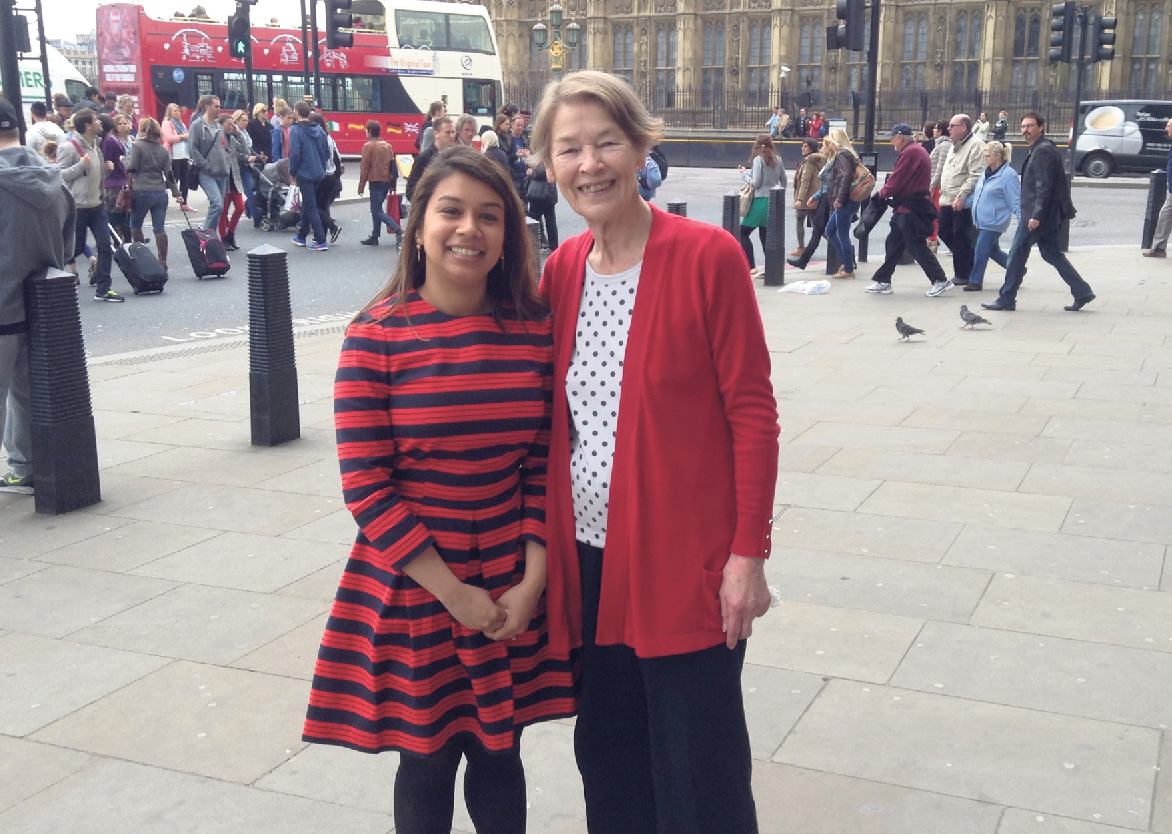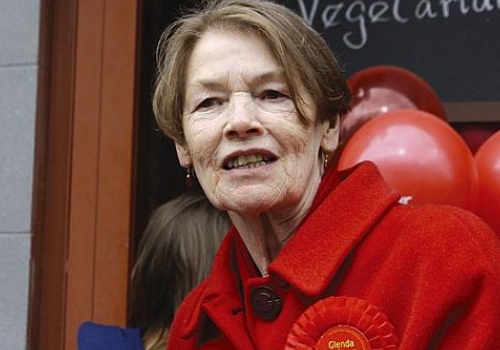Tulip Siddiq: Our treasured chats helped me get to know the real Glenda Jackson
People differed in their opinions of her and whether she was an effective local MP but the one thing no one ever said is “who is Glenda Jackson?”
Friday, 23rd June 2023 — By Tulip Siddiq MP

The first two MPs for Hampstead and Kilburn: Glenda Jackson with Tulip Siddiq
In a personal reflection, Hampstead and Kilburn MP TULIP SIDDIQ pays tribute to her predecessor, Glenda Jackson, who died last week aged 87
THE first time I met Glenda she swore like a sailor with a papercut. But that’s not where I’ll start. Because I’d heard of Glenda long before I met her.
This was true of nearly everyone who worked with her as a politician. I moved to Hampstead when I was 15 and lived in Frognal – the only ward in the constituency that had never had a Labour councillor.
Despite favouring the blues, everyone on my street and the surrounding area knew our local MP Glenda Jackson.
People differed in their opinions of her and whether she was an effective local MP but the one thing no one ever said is “who is Glenda Jackson?”
Everyone knew who she was. People say that’s half the achievement for a politician – your constituents knowing your name. There was never an issue about name recognition.
Not only had Glenda won a seat that had been blue for 22 years, she had won the seat in 1992 against all odds – a year when Labour fell short of a majority by 55 seats.
And of course, she was the only politician in the world who had won two Oscars. Ronald Reagan and Arnold Schwarzenegger may be better known actors-turned-politicians, but they never won an Oscar.
I had often wondered why Glenda became a socialist and where her left-wing values originated from.
After I became the candidate for Hampstead and Kilburn in 2013, I timidly asked her why she became an MP and she said it had everything to do with the working-class environment she grew up in.
She described the moment she got asked to stand as an MP in a surprised tone: “Oh those lovely ladies, you know Janet Guthrie and Penny Abraham. Well, they rang me out of the blue and asked me to stand.”
Glenda said she had never met Janet or Penny and that she had lived in Hampstead when she had first got married but she hadn’t been back for 20 years.
It was obvious the local party needed someone and they had thought of her. She said the local members including the likes of Geoff Berridge, Graeme Hughes and David Sladen were all very helpful to her but she was disparaging about the national Labour Party saying she became some kind of token lefty woman for TV programmes like Any Questions?
The national Labour Party had obviously cottoned on that she was a Labour supporter even though she hadn’t said it outright.
She reeled off some favours she did for the party like campaigning for candidates in marginal seats in 1979, 1984, 1992 but then in typical self-deprecating fashion added that the candidates “never won the seats”.

Glenda never saw herself as a name, as an attraction. Despite having been an MP for 23 years and served as a transport minister, Glenda had none of the entitlement that so often comes through dealing with politicians of a similar standing.
As an example, when I asked her why those various local Labour parties had wanted her to campaign for them – a question she could have reasonably scoffed at – she took it seriously, remarking impassively that perhaps members could link a name to a face and a face to a name – “which was probably useful”.
The question prompted a scathing report of how the local constituency parties would make a big deal about her presence but that when she actually got to a session, she was only really allowed to speak to each voter for some 30 seconds before being rushed down the next road.
Glenda regaled me with further tales of how she had been rebuffed when out canvassing, proving that no matter who you are, if you’re out on the stump, the public call the shots. In one example, an elderly couple turned their noses away from her, as if her social values had some offensive odour.
In another, a voter in Sheffield dismissed her, lecturing her that they were staunch Conservative voters. She let out her self-deprecating laugh – she had been put in her place.
Not once did Glenda acknowledge, let alone inflate, her sense of worth or comment on her fame. It was almost as if she didn’t see it.
Being an inhabitant of the Westminster bubble, I’m very used to people inflating their sense of public worth, and so it seemed farcical that someone of such glittering success on the silver screen didn’t remotely acknowledge the power she had to draw people in.
When Glenda and I discussed our constituency which she represented and I now represent, she said “I didn’t really have any territorial association, I just couldn’t bloody stand Margaret Thatcher!” and then launched into how enraged she had felt when Thatcher said there was no such thing as society (so enraged, she melodramatically stated she crashed straight into her French windows when she first heard it).
After I got elected in 2015, I often called Glenda for advice and to swap stories. It struck me during those conversations that Glenda had always been in the world of politics for the right reasons.
I once asked her what she was most proud of. It’s a question I often get asked and I have a ready-made answer. It’s a common question for politicians.
Despite asking Glenda four times, I couldn’t get a proper answer. In the end, she relented and launched into a long monologue about two of her constituents.
One had been mistreated in prison and another had been abducted. She said that twice in her life constituents had come up to her and said “you saved my life”.
In her own words: “I think he was exaggerating but yes, you don’t hear that very often, I heard it twice and that’s not bad.” As she recounted those instances of having “saved someone’s life”, it felt like those cases had a more treasured place in her thoughts than any cabinet meeting she attended or any legislation she was involved in passing. Or indeed her Oscars.
She then mentioned the Iraq War and explained that it was hard to vote against your party, let alone your government but that it had been the right move for her. Her assessment of the total disaster that led to a “phoney war” was scathing and fervent: “The endless prevarications, the endless arguments and that phoney dossier.”
Despite spending a lifetime learning to play other people on stage, she was never Tony Blair’s ventriloquist dummy.
She was threatened with deselection if she didn’t stop criticising the government – to which she replied: “Good, I’d like to see them try.”
The famously divisive politician Enoch Powell said all political lives end in failure.Yet again, he was wrong.
If you’re Glenda Jackson, you finish your political life and go on stage as the first female King Lear in the history of London theatre.
Rest in Peace Glenda, our constituency will miss you.
